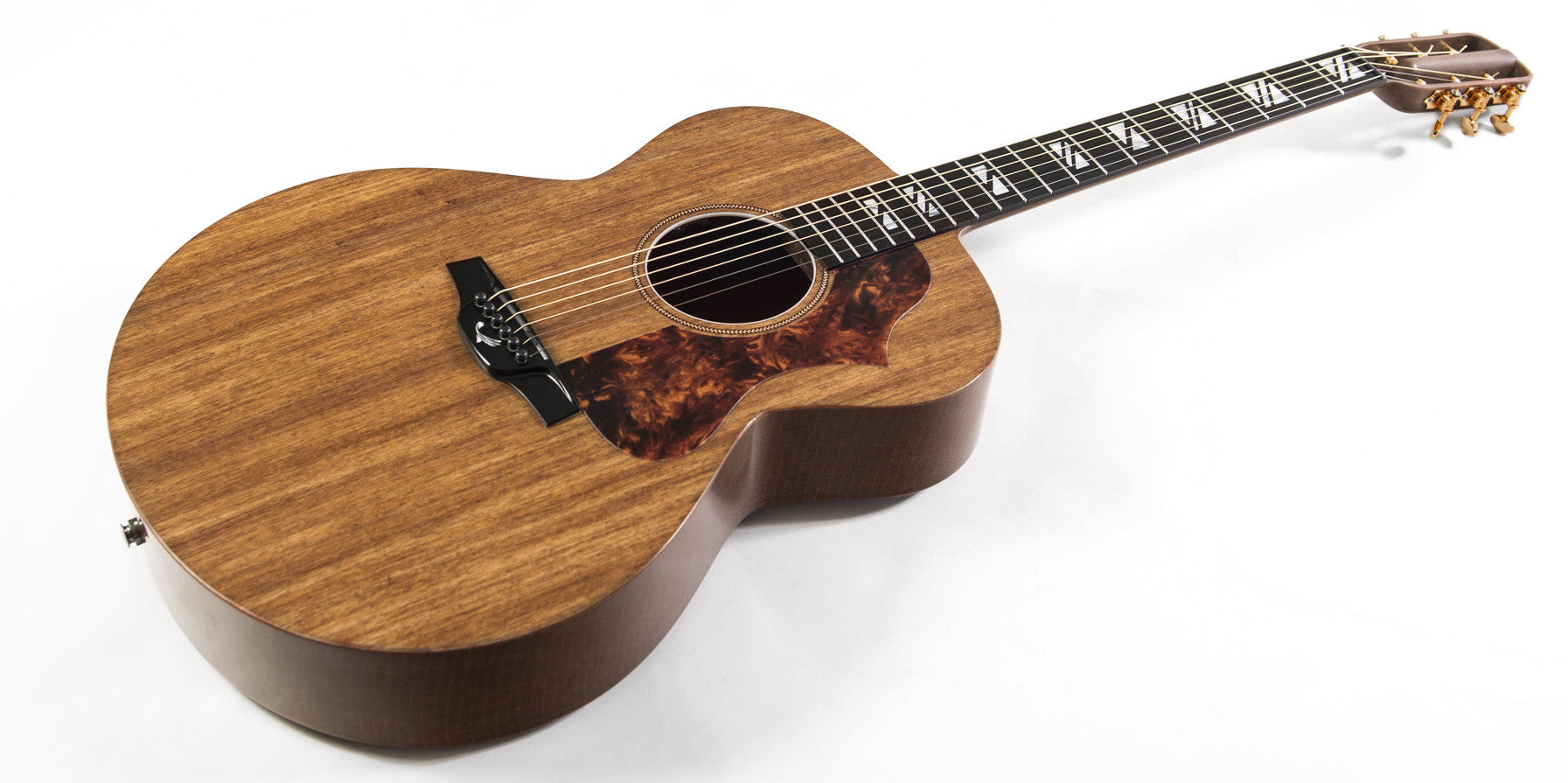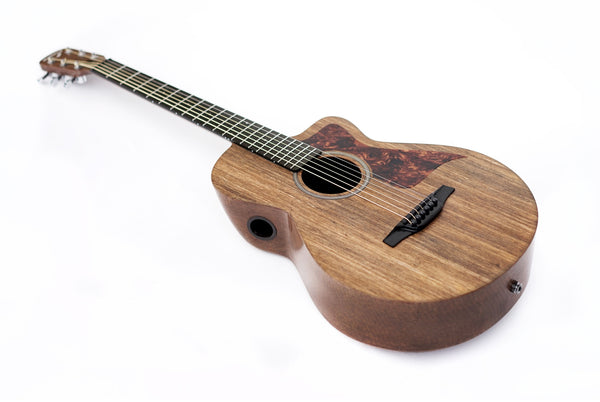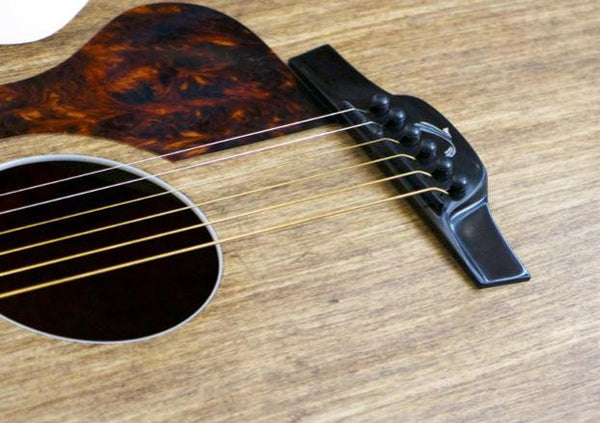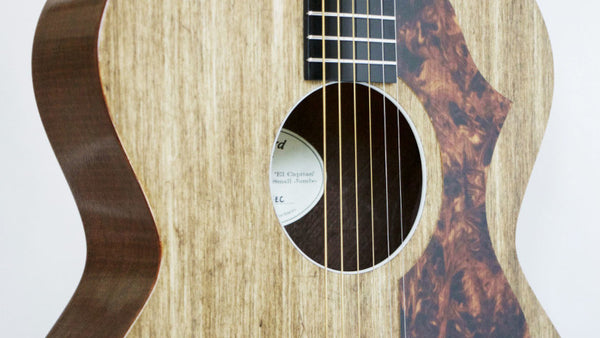
AUTHOR: LIZ STINSON Read original article here
A WOOD GUITAR can be a fickle thing. Oh sure, the best of them sing with tone to die for. But let it get too hot or too cold, or too humid or too dry, and that beautiful voice can change. Alternative materials like carbon fiber skirt these issues, but lack the traditional aesthetic of a hardwood guitar.
El Capitan, the new six-string from Blackbird Guitars, provides the look, sound, and beauty of a hardwood instrument without the fuss or ecological concerns. It’s made of Ekoa, a proprietary composite of flax linen and bio-resin made from industrial waste. The company claims the material is lighter than carbon fiber and stiffer than Sitka spruce, the preferred material for the best soundboards. “We like to say it’s old-growth wood without the worry,” says founder Joe Luttwak.
Luttwak, a longtime guitarist, started the San Francisco company in 2005 because he saw too few guitars that could survive a hard life on the road. Blackbird’s first guitar, the carbon fiber Rider, could take a beating and still sound amazing, but customers offered one complaint: “People liked it but were asking, ‘Can you make it brown? And can you try to make it look more like wood?'” Luttwak says. He had no interest in making carbon fiber look like wood. “That’s product design 101: You don’t want to make something look fake because then it is fake,” he says. So the Blackbird team launched a 10-year project to develop something that looks and sounds like wood, but isn’t.
Luttwak describes Ekoa as “solid linen,” and says the goal was to emulate old wood. As years pass, wood becomes thinner, yet more rigid and resilient, a combination that yields a warm, open and powerful sound. This is one reason old instruments command high prices. “People want to walk into a store and they want to walk out with someone’s grandma’s guitar,” he says. Luttwak wanted to create the same structural properties in an easily mass-produced bio-composite material. He and his partners founded Lingroveto develop Ekoa, a 50-50 mix of flax linen fibers and resin made with industrial waste.
Blackbird claims a guitar made with Ekoa is 30 percent lighter than the average acoustic guitar, and its hollow neck creates additional space for the sound chamber. Less weight also means the strings need not vibrate as much to produce sound, and allow the soundboard to vibrate more freely, producing louder and more dynamic notes. The result is a guitar that sounds bigger than it is, and is more durable than wood.
Blackbird builds each El Capitan at its San Francisco factory. Each uses more than 100 pieces of Ekoa placed into a mold, then cured under high heat and pressure for several hours. The body is then bonded to the soundboard, creating a two-piece guitar, something Luttwak says further improves the tone. “The guitar is resonating in unison rather than separate parts that are at odds with each other,” he says.
The guitars are essentially handmade and priced accordingly, at a bit more than $3,000. That’s on par with other composite acoustic guitars. Whether an instrument made with flax and industrial waste is worth that kind of money depends upon how big a purist you are, but beyond the remarkable sound, Luttwak says there’s something else you’ll like: “With Ekoa you don’t have to worry about babying your instrument.”




